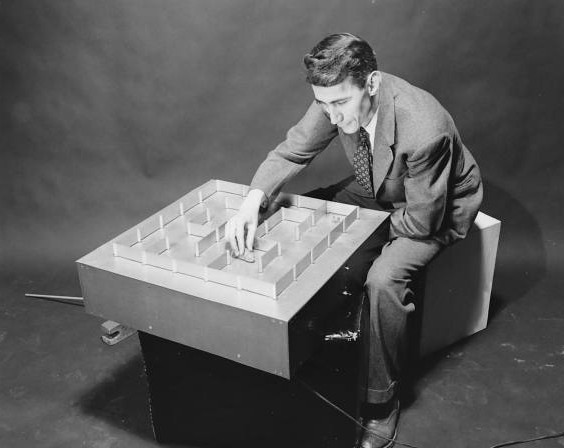In an Edge conversation, Australian professor David Christian, an admitted science geek, recalls asking himself this question: “Could you teach a history course that began with the origins of the universe?” It really doesn’t make sense that we’ve ever taught such studies any other way, just the result of a paucity of imagination or a lack of faith in students.
I don’t know that the universe has any meaning as Christian suspects it might, but as Marshall McLuhan advised, we should use our powers to discern patterns, and I’ll add, to recognize when there’s a break from them, and this analysis should stretch back to the beginning of time, not just the earliest conflicts among the tribes who’ve recently arrived on Earth.
Two brief excerpts from Christian follow.
______________________________
In modern science, and I include the humanities here, science in a German sense of science—rigorous scholarship across all domains—in modern science we’ve gotten used to the idea that science doesn’t offer meaning in the way that institutional religions did in the past. I’m increasingly thinking that this idea that modernity puts us in a world without meaning—philosophers have banged on about this for a century-and-a-half—may be completely wrong. We may be living in an intellectual building site, where a new story is being constructed. It’s vastly more powerful than the previous stories because it’s the first one that is global. It’s not anchored in a particular culture or a particular society. This is an origin story that works for humans in Beijing as well as in Buenos Aires.
It’s a global origin story, and it sums over vastly more information than any early origin story. This is very, very powerful stuff. It’s full of meaning. We’re now at the point where, across so many domains, the amount of information, of good, rigorous ideas, is so rich that we can tease out that story. E.O. Wilson has been arguing for this for a long time. In Consilience he argued for this. It’s the same project.
It turns out, as we tell it at least, there is a coherent story.
______________________________
If you move on to human beings (our fifth threshold of increasing complexity) you can ask the question, which students are dying to ask: What makes humans different? It’s a question that the humanities have struggled with for centuries. Again, I have the hunch that within this very broad story, there’s a fairly clear answer to that. If all living organisms use information about their environments to control and manage the energy flows they need to survive—biologists call it metabolism—or to constantly adjust—homeostasis—then we know that most living organisms have a limited repertoire. When a new species appears, its numbers will increase until it’s using the energy that its particular metabolic repertoire allows it to fill.
Yet look at graphs of human population growth and something utterly different is going on. Here, you have a species that appears in probably the savanna lands of East Africa, but it doesn’t stay there. During the Paleolithic—over perhaps 200,000 years—you can watch the species, certainly in the last 60,000 years, slowly spreading into new niches; coastal niches in South Africa. Blombos Cave is a wonderful site that illustrates that. Then eventually desert lands, forest lands, eventually into ice age Siberia, across to Australia. By 10,000 years ago our species had spread around the world.
This is utterly new behavior. This is a species that is acquiring more, and more, and more information. That is the key to what makes us different.•
Tags: David Christian

